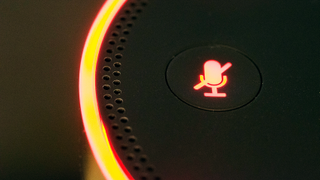Why the Amazon Echo could be made redundant very soon
When every speaker has Alexa, what's left for the Echo?

Qualcomm, the manufacturer behind the mobile-focussed Snapdragon processors, is investing big into its Smart Audio Platform, which it’s hoping will power the next generation of voice-assistant equipped devices.
The new chips are built to integrate with multiple voice assistants, including Google Assistant and Alexa, and support multiple configurations of microphones, allowing it to vary between, for example, Google Home’s 2-microphone array and the Amazon Echo’s 7.
Specific technologies enabled by the chips include far-field noise cancellation to allow a device’s microphones to be able to hear your voice from across the room, keyword detection, and voice biometrics (to allow a speaker to potentially recognize different voices like Google Home).
Having these technologies built into the chip should allow different manufacturers to save a lot of time bringing their connected devices to market.
Amazon has already encouraged other companies to integrate Alexa into their products, and has even made its own 7-microphone array available to manufacturers.
Similarly, Google is also partnering with other device manufacturers to equip their devices with its smart assistant. Qualcomm’s technology is aiming to make it even easier for manufacturers to build in the technology.
An end for Echo?
Given that the goal appears to be equipping every speaker in your house with a voice assistant, this could spell the end for dedicated voice assistant devices such as the original Echo and Google Home.
Get daily insight, inspiration and deals in your inbox
Sign up for breaking news, reviews, opinion, top tech deals, and more.
After all, if, in the future, the soundbar in my living room, DAB radio on my bedside table and connected multi-room speaker in my kitchen are all going to be equipped with Alexa, then what purpose does an Amazon Echo serve?
In this context, the original devices seem more like a trogan horse for the technology rather than the end-goal.
For its part, Amazon appears to be working to ensure that the Echo does more than simply act as a speaker such as building in cameras and touchscreens with the Echo Look and Echo Show.
But in the long term could we see the eventual extinction of dedicated voice assistant device, even as the likes of Alexa and Google Assistant become ever-more common features in the modern smart home?
Only time will tell.
- Check out everything we know about the Amazon Echo Show, the Amazon Echo Look, and our reviews of the Amazon Echo and Amazon Echo Dot.
Jon Porter is the ex-Home Technology Writer for TechRadar. He has also previously written for Practical Photoshop, Trusted Reviews, Inside Higher Ed, Al Bawaba, Gizmodo UK, Genetic Literacy Project, Via Satellite, Real Homes and Plant Services Magazine, and you can now find him writing for The Verge.
